The Department’s Clinical Research program focuses on improving healthcare through clinical research and education. The program includes both investigator-initiated and industry-sponsored clinical projects, including NIH-supported single center and multicenter clinical trials. The program is advancing medical practice in the fields of perioperative care, chronic pain and medical devices. Investigators are practicing physicians who use clinical expertise to develop research protocols that seek to answer clinically-significant questions and test novel treatments.
-
The Perioperative Clinical Research Institute (PCRI) is led by David McIlroy, MBBS., MD, MClinEpi; and Mari Egan, RN, MS. The mission of PCRI is to:
- Promote a culture of large and robust clinical trials that would, in turn, provide high-quality evidence to inform perioperative practice nation-wide.
- Promote high-quality, high-impact clinical research tailored to the experience and expertise of individual clinicians and accessible to all members of the department
- Create opportunities for junior investigators to learn the process of clinical research
- Mentor investigators throughout the research development and implementation process
- Promote Good Clinical Practice (GCP) and ensure regulatory compliance
The PCRI team provides a full range of support services, including development and submission of IRB applications, contracts management, initiation and execution of clinical studies, regulatory and compliance oversight, data management, biostatistics and biomedical informatics support. The end-goal is execution and publication of well-designed clinical research studies that address important questions, from smaller studies designed to generate preliminary, pilot or feasibility data in support of subsequent grant applications through to multi-center investigator-initiated studies. Most of the department’s investigators are practicing physicians who use their clinical expertise to develop research protocols that answer clinically important questions. The PCRI team consists of highly trained and broadly experienced research professionals, including research nurses, clinical trial coordinators, a regulatory specialist and administrative support.
-
Operational management of PCRI is guided by the Vanderbilt Anesthesiology Clinical Research Advisory Committee (VACRAC). All proposed clinical research studies are reviewed by VACRAC for development and refinement. There is dedicated informatics and biostatistical support within the department, with a focus on supporting studies that can lead to important clinical trials.
VACRAC is co-chaired by Edward Sherwood, MD, PhD (Vice Chair for Research), David McIlroy, MB.BS., MD, MClinEpi (Director of Clinical Research), Pratik Pandharipande, MD, MSCI (Vice Chair for Faculty Affairs), and Matthew Shotwell, PhD (Department of Biostatistics). The committee’s membership is composed of established clinical investigators in the Department of Anesthesiology.
Any member of the Department of Anesthesiology may submit a clinical research proposal as a one-page online submission including a brief background on the clinical problem, a primary hypothesis for testing, the significance of the proposed study, a brief research protocol and estimation of required resources. All proposals undergo rapid review by a small research committee, with written feedback provided, including a traffic-light style triage system and advice on what may be required to advance the project. Resource intensive projects are typically triaged into a more intensive VACRAC studio where investigators present their proposals to senior clinical researchers within the department for real-time discussion and dialogue aimed at refining the study methodology.
Currently active studies include a mix of funded and unfunded studies, investigator-initiated and industry-sponsored studies, single-center and multi-center clinical trials, observational and retrospective studies. The department and institution strongly support the initiation, development and execution of large pragmatic trials. Recent or current clinical trials supported by VACRAC include the multicenter REGAIN trial of general anesthesia vs regional anesthesia after hip fracture, the single-center COPE-iOS trial testing the effectiveness of cognitive and physical exercise to improve outcomes after surgery, a single-center study of pharmaco-genomic guided beta-blocker administration in patients undergoing cardiac surgery, large pragmatic trials of intraoperative ketamine and high-flow nasal cannula to reduce re-intubation after cardiac surgery.
-
Goal
The primary goal of the Vanderbilt Anesthesiology Innovation Grant Program is to promote investigator-initiated research for early-stage projects that will lead to publication and, ideally, to extramural funding.
Innovation grants will fund:
- Clinical and translational research that has a high probability of improving patient care and leading to publication in top tier journals.
- High risk and highly innovative basic science unlikely to be funded by conventional mechanisms and that has a high probability of eventually leading to significant extramural funding.
Overview
Faculty, staff, and trainees of the Vanderbilt Department of Anesthesiology may apply for funds to support new and innovative research initiatives in perioperative medicine. The result of the proposed work is expected to lead to publication and, ideally, a competitive application for extramural funding. The program is supported by the Crawford Long Fund, an endowed fund established by the Department to support Department-wide research initiatives.
This is a revolving application program with applications reviewed and awarded on an ongoing basis dependent on availability of remaining funds. Applications are reviewed by the Anesthesiology Research Executive Committee which makes funding recommendations to the Chair. Projects will be evaluated based on likelihood for completion, publication impact, and potential for extramural funding. Applicants need not have a history of research productivity, but junior applicants must demonstrate committed mentorship from successful investigators.
This program is funded by the Department from the Crawford Long FundBudget Restrictions
Proposals should include a maximum request of $50,000. Proposals may include requests for supplies, equipment, data analysis, and support services.
Application Process
Submit applications to Dr. Ed Sherwood, Vice Chair for Research (edward.r.sherwood@vumc.org).
The Anesthesiology Innovation Grant Submission Form must be completed and signed by the Principal Investigator. Download the Innovation Grant Application Form (PDF).
- Applications must be received at least two weeks prior to the next AREC meeting, which occurs on the second Friday of every month.
- You will receive an acknowledgment of your submission within one week.
- Once the committee meets to discuss your application, you will receive a letter of response within two weeks.
- If the committee requests further clarification on your application, you will have 10 business days to respond.
- Once your response is received by the committee, you will get a letter of acknowledgment within one week.
- You will be notified about the committee’s decision within two weeks.
PI responsibilities once they receive funding
Successful applicants will be asked to submit a quarterly report to the AREC committee. This report should include the following information:
- Report date
- Project title
- Reporting period
- Principal Investigator
- Telephone number
- Contract expenditures to date (as applicable):
- Comments on administrative and logistical matters.
- Description of scientific progress for the quarter in terms of the tasks or objectives. Explain deviations where this isn't possible. Include data where possible.
- Present a brief statement of plans or milestones for the next quarter.
For any questions regarding the Vanderbilt Anesthesiology Innovation Grant process, email edward.r.sherwood@vumc.org.
-
Faculty planning a project that requires IRB approval must register the project through this REDCap survey.
-
Frederic T. (Josh) Billings IV, MD, MSc, Laboratory
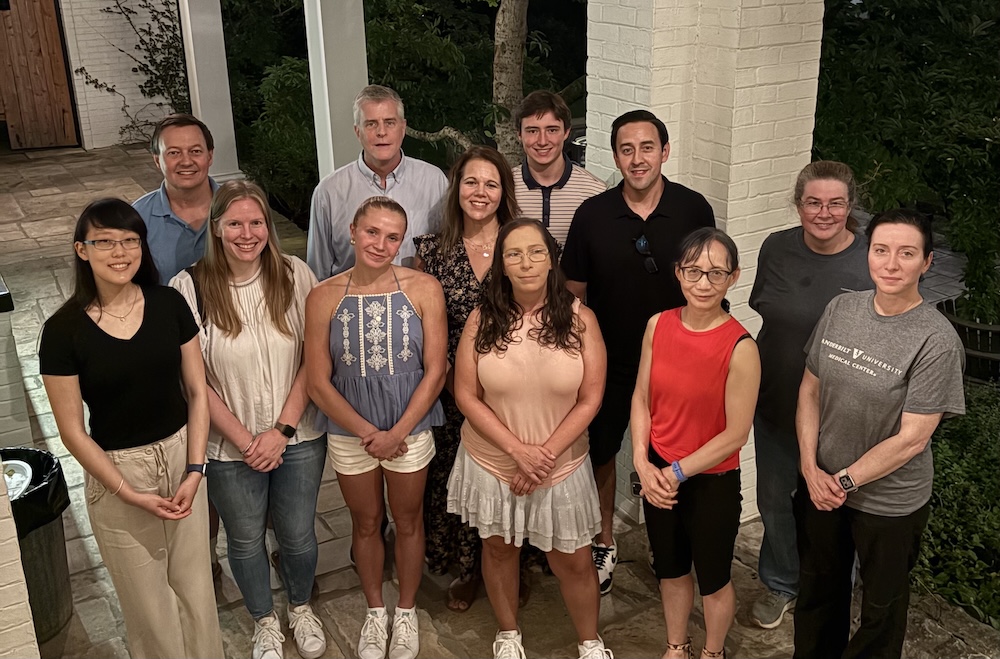
Dr. Billings founded the Perioperative Organ Protection and Physiology Laboratory (PROTECT Lab) with long-term collaborator Marcos G. Lopez, MD, MS in 2021 to focus on developing new therapy for perioperative organ injury by conducting clinical trials and evaluating mechanisms of surgery-induced organ injury. Broadly this includes studying and manipulating the patient response to acute surgical stress to reduce morbidity, but specifically we are investigating the impact of perioperative oxidative damage as a mechanism of acute kidney and brain injury in patients having surgery. The PROTECT Lab conducts preclinical studies in mice, bench experiments with human tissues (arteries, arterioles, myocardium, fat, PBMCs, blood, urine), mechanistic, explanatory, and pragmatic clinical trials, and large-data epidemiologic studies to advance the R35-funded Research Program. The group collaborates with numerous experts and peer groups across the institution. Key collaborators include faculty in Division of Genetic Medicine Clinical Pharmacology, Department of Biostatistics, the Pragmatic Critical Care Research Group, the Division of Nephrology, and the Perioperative Clinical Research Institute.
To decipher mechanisms of perioperative organ injury and advance the care of patients having surgery, we conduct clinical trials of novel treatments and measure the impact of these treatments on candidate pathways (mechanisms) of injury, organ injury, and patient-centered outcomes.
For example, our 445 subject angiotensin converting enzyme inhibition or aldosterone antagonist randomized clinical trial to prevent acute postoperative atrial fibrillation demonstrated that intraoperative oxidative injury, as opposed to acute inflammation or anti-fibrinolysis, independently predicts postoperative acute kidney injury (AKI) and that perioperative statin use was associated with a decreased incidence of AKI. Based on those findings, we designed and completed the 653 Statin AKI Cardiac Surgery RCT, testing the hypotheses that short-term, high dose, perioperative atorvastatin reduces oxidative stress and AKI compared to placebo. We noted that isofurans – products of arachidonic acid peroxidation preferentially formed in conditions of relatively high oxygen tension – increased to a greater extent during surgery than F2-isoprostanes, the gold standard marker for quantifying oxidative injury in vivo. Tissue oxygen tension may be increased in vivo for two reasons, decreased consumption, as has been observed in patients with dysfunctional mitochondria, or increased delivery, as is typical among mechanically ventilated patients receiving supplemental oxygen in the operating room or ICU. We are exploring both possibilities.
To assess the effect of mitochondrial function on postoperative kidney, brain, and heart injury, we have measured mitochondrial DNA copy number, arterial lactate pyruvate ratios, and leukocyte PGC1alpha mRNA expression in patients undergoing cardiac surgery and have discovered that intraoperative mitochondrial dysfunction predicts postoperative AKI and delirium and that these markers of mitochondrial dysfunction are associated with increased concentrations of isofurans.To assess the effect of excess oxygenation we designed and completed the Risks of Oxygen during Cardiac Surgery (ROCS) trial to test the hypothesis that physiologic oxygenation (normoxia) decreases the production of reactive oxygen species, oxidative damage, and organ injury compared to hyperoxygenation (hyperoxia). Indeed, normoxia decreased the intraoperative production of F2-isoprostanes and isofurans, but this effect did not persist in the postoperative period when normoxia and hyperoxia groups received similar oxygenation, and postoperative organ injury was similar between treatment groups. Both approaches were safe and there were some intriguing findings relative to neurologic injury and cardiac arrythmias that the group is not exploring.
To further measure the effect of different intraoperative oxygen administration strategies on patient outcomes, the Lab has initiated IntraOp Ox (supported by an IMPACT grant award from MPOG), a large multicenter cluster-randomized, cluster-crossover pragmatic multicenter clinical trial to test the hypothesis that a lower, intermediate, or higher oxygen administration strategy affects a composite of organ injury (kidney, brain, heart, and lung injury) and mortality.
Meanwhile, the group is also measuring the effect of various intraoperative and postoperative oxygenation strategies in mice during controlled renal and cerebral ischemia and reperfusion experiments.
Additional R01-supported projects include SOLSTICE (Lopez, PI), a clinical trial of preoperative vericiguat, a soluble guanylate cyclase stimulator, to attenuate perioperative vascular dysfunction and decrease markers of kidney and brain injury, KAOS-II (Billings, Co-PI, with Stephen Bruehl, PhD), an RCT of high dose Gly-NAC for 10 weeks in patients undergoing knee replacement to decrease oxidative damage and transition from acute to chronic pain, and MENDDS-II (Billings, site PI), an RCT of postoperative dexmedetomidine in extubated cardiac surgery patients to decrease delirium and cognitive dysfunction.
Stephen Bruehl PhD, Laboratory
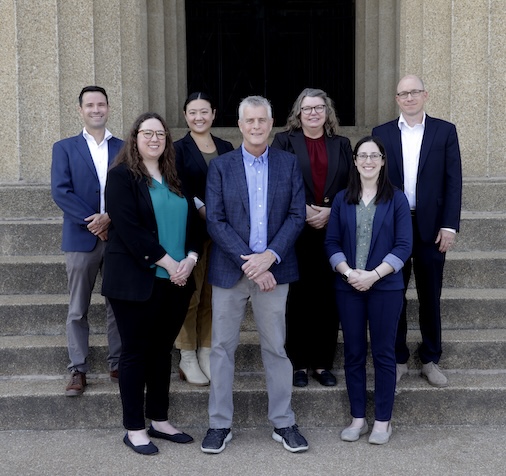
The work in Dr. Bruehl’s lab is focused on understanding acute and chronic pain and enhancing pain management. For more than 10 years, a key focus of the lab has been on understanding the physiological (endogenous pain inhibitory function) and psychosocial factors that influence the benefits versus risks experienced when individuals use opioid analgesics for pain management. The lab’s current work examines several hypothesized mechanisms that may contribute to known associations between elevated stress and risk for opioid misuse. Mechanisms being examined in this work include operant reinforcement (by subjective opioid effects), endogenous opioid function, endocannabinoids and vagal inhibition (indexed by heart rate variability). Dr. Bruehl’s lab has also previously conducted studies seeking to understand the mechanisms underlying beneficial effects of non-pharmacological interventions for chronic pain (aerobic exercise training, mindfulness, spinal manipulation therapy).
Another current focus of the Bruehl lab is on evaluating the role of oxidative stress as a contributor to adverse postsurgical pain outcomes. The lab is conducting an NIH-funded randomized clinical trial of a potent antioxidant intervention as a means of reducing the risk for adverse long-term pain outcomes following total knee arthroplasty surgery (TKA).
Several junior investigators (supported in part by NIH K-23 training grants) also conduct mentored pain research in Dr. Bruehl’s lab. Ongoing and planned studies address topics including:
- how parent and child psychosocial factors interact to influence parental decisions regarding use of opioid analgesics in their children following surgery,
- comparing analgesic and misuse-relevant subjective effects of oxycodone vs. buprenorphine with the goal of determining whether buprenorphine might have clinical utility in the post-surgical pain management setting but with lower misuse risk than typical opioids,
- understanding the extent to which mechanisms of chronic pain and autism may overlap and account for the apparent increased risk of chronic pain in autistic youth,
- genetic factors that may contribute to central sensitization to pain and opioid use patterns, and
- application of artificial intelligence to permit individualized pain management (precision pain medicine).
Dr. Bruehl’s work is conducted in both the laboratory and clinical settings and employs multiple methodologies. These include static (pain threshold, pain tolerance) and dynamic (temporal summation of pain, conditioned pain modulation) quantitative sensory testing, psychometric assessment, biological sampling (endocannabinoids, beta-endorphin, F2-isoprostanes, proinflammatory cytokines) and placebo-controlled administration of both opioid analgesics and opioid antagonists (the latter to evaluate endogenous opioid function).
Overall, the goal of the research in Dr. Bruehl’s lab is to better understand the biopsychosocial factors contributing to chronic pain and its related health risks, and ultimately, to improve treatment of chronic pain while mitigating against the risks associated with opioid analgesic use.
Visit the Pain Research Group website.
Christopher Hughes, MD, Laboratory
Christopher G. Hughes, MD, MS, FCCM is a professor of anesthesiology in the Department of Anesthesiology, Division of Anesthesia Critical Care Medicine at Vanderbilt University Medical Center (VUMC). He graduated with a Bachelor of Science in Biochemistry summa cum laude from Indiana University in 2001 and a Doctor of Medicine degree from Indiana University School of Medicine in 2005 as a member of the Alpha Omega Alpha Honor Medical Society. He then completed residency in Anesthesiology, including a year as Chief Resident, in 2009 and critical care medicine fellowship in 2010 at VUMC. Dr. Hughes subsequently joined the faculty of VUMC where he is a practicing anesthesiologist and intensivist. He currently serves as Chief of the Anesthesia Critical Care Medicine Division, as Medical Director of the Neuro ICU.
Dr. Hughes is a senior principal investigator in the Critical Illness, Brain Dysfunction, and Survivorship Center. His research focuses on evaluating mechanisms, prevention strategies and potential therapies of delirium and long-term cognitive impairment after acute illness. He is additionally a mentor or co-investigator on numerous studies across the VUMC, ranging from the emergency department to the operating rooms and ICUs.
Dr. Hughes has published extensively in the critical care, anesthesiology and surgery literature and is a frequent presenter at national and international scientific meetings. He has received continuous funding from the National Institutes of Health National Institutes of Health as well as funding from the Patient-Centered Outcomes Research Institute, Foundation for Anesthesia Education and Research, American Geriatrics Society, and industry.
Dan Larach Laboratory
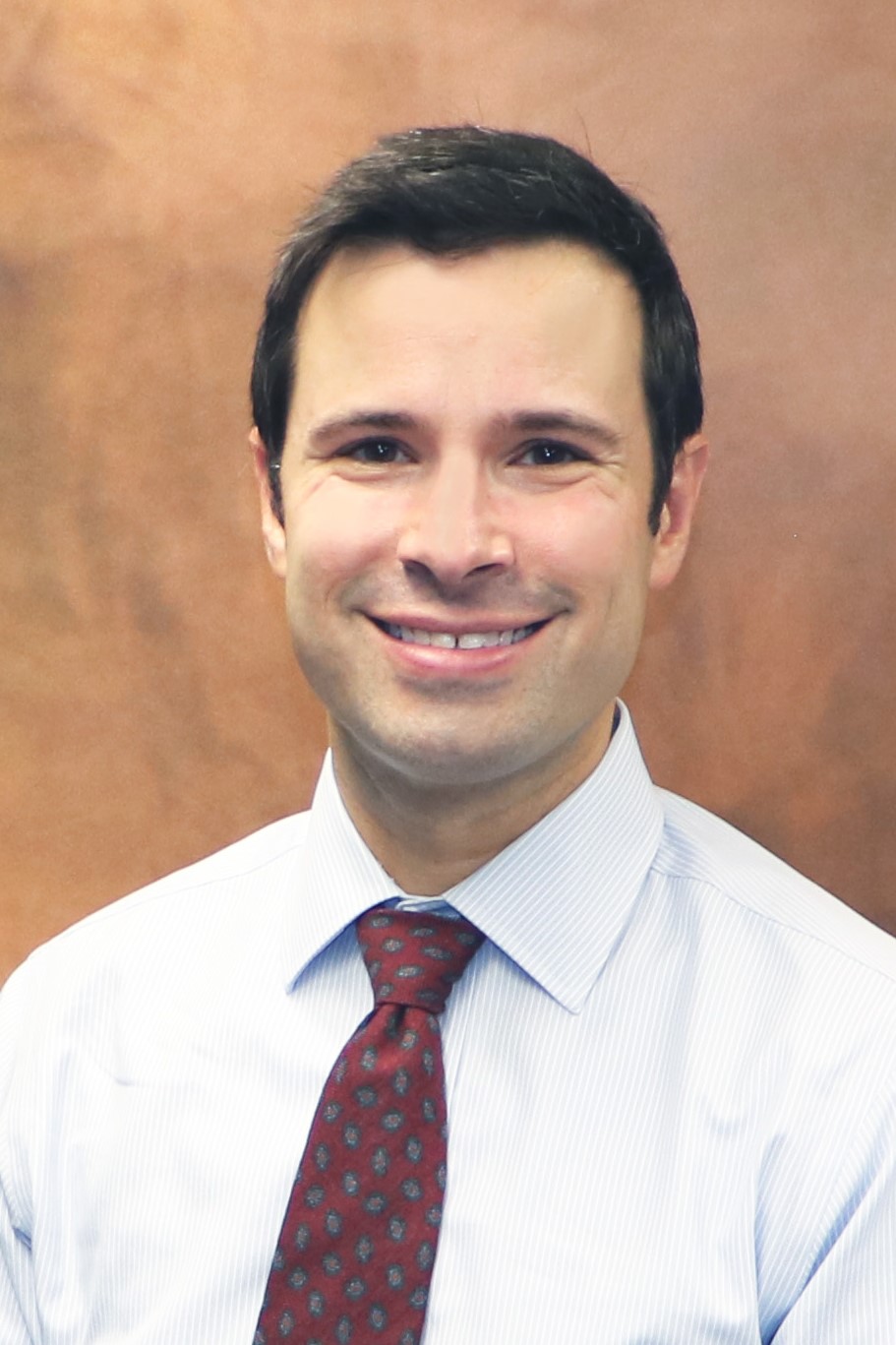
Dan Larach, MD, MS, MA is Associate Professor of Anesthesiology at Vanderbilt University Medical Center. His research focuses broadly on the optimization of pain management while minimizing opioid-related harms such as new persistent opioid use and misuse and opioid use disorder. He has a particular interest in postoperative opioid prescribing. He is currently funded by a K23 grant from the National Institute on Drug Abuse to study the relative abuse potential and analgesic efficacy of low-dose buccal buprenorphine compared with full-agonist opioids. He has received prior funding from the National Institute on Aging through the USC Roybal Center on Behavioral Interventions in Aging and the Doris Duke Charitable Foundation, and has published in journals including Science, Annals of Surgery, and Anesthesiology.
Clinically, Dr. Larach is a board-certified anesthesiologist and pain physician. He is co-chair of the Vanderbilt Opioid Stewardship and Safety Committee, physician co-champion for the institution's Spine ERAS Group, and a member of the Vanderbilt Committee on Opioid Monitoring and Stewardship. Outside Vanderbilt, he is Associate Editor of Regional Anesthesia and Pain Medicine and a member of Anesthesiology's Visual Abstracts Team.
Dr. Larach has an AB from Princeton and MD, MS and MA degrees from Penn. He completed a residency in anesthesiology at Michigan and a fellowship in pain medicine at Cornell.
Matthew C. Morris, PhD
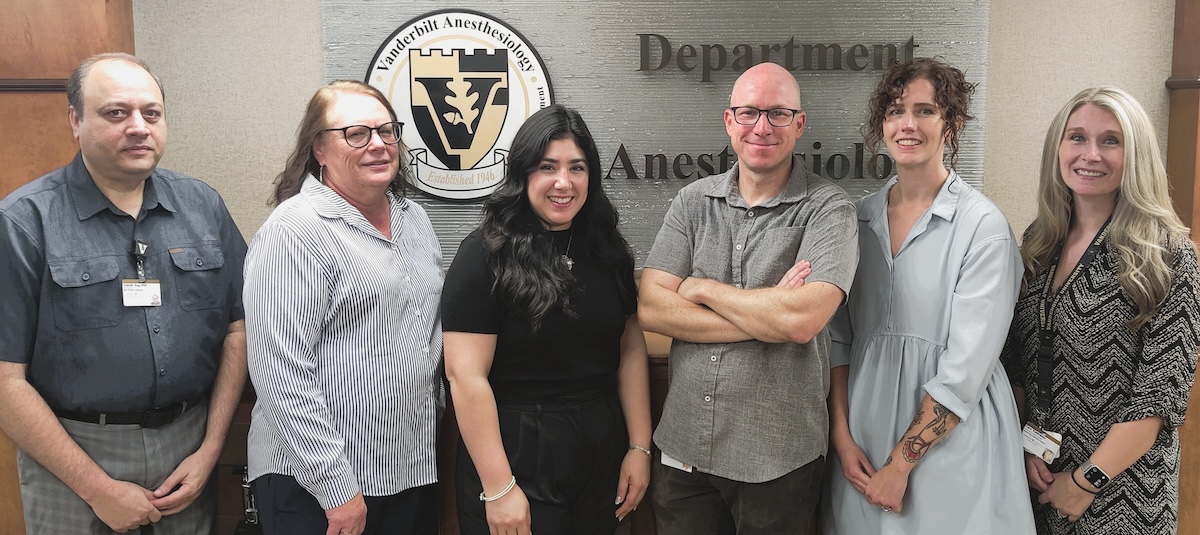
Dr. Morris is a clinical psychologist whose program of research is focused on biopsychosocial factors associated with the development and persistence of trauma-related psychopathology and chronic pain. His work seeks to improve understanding of how social stressors influence racial and socioeconomic differences in pain outcomes. He is currently principal investigator for an NIMHD-funded longitudinal study evaluating biobehavioral and social factors associated with the transition from acute to chronic pain in Black and White orthopedic injury patients (R01MD016838 ), and site principal investigator for an NIMHD-funded study evaluating social stressors and allostatic load as contributors to racial differences in the development of chronic low back pain (R01MD017565).
Dr. Morris currently serves as co-principal investigator on a study focused on improving care for pregnant and postpartum women with co-occurring substance use disorders and exposure to intimate partner violence (funded by the Office on Women’s Health). He is also a co-investigator on two studies focused on improving access to evidence-based treatments for post-traumatic stress and substance use disorders among adults participating in drug court programs (funded by the Health Resources and Services Administration and the Substance Abuse and Mental Health Services Administration) and an NIMHD-funded study that will develop and implement community- and hospital-focused interventions to prevent firearm-related violence, injury, and mortality (UH3MD018298).
Dr. Morris obtained his doctoral degree in clinical psychology at Vanderbilt University and completed a postdoctoral fellowship at Meharry Medical College. He was an Associate Professor at the University of Mississippi Medical Center in the Department of Psychiatry & Human Behavior (2019 to 2023) before joining the Department of Anesthesiology at Vanderbilt University Medical Center in 2023.
Joseph Schlesinger, MD, Laboratory
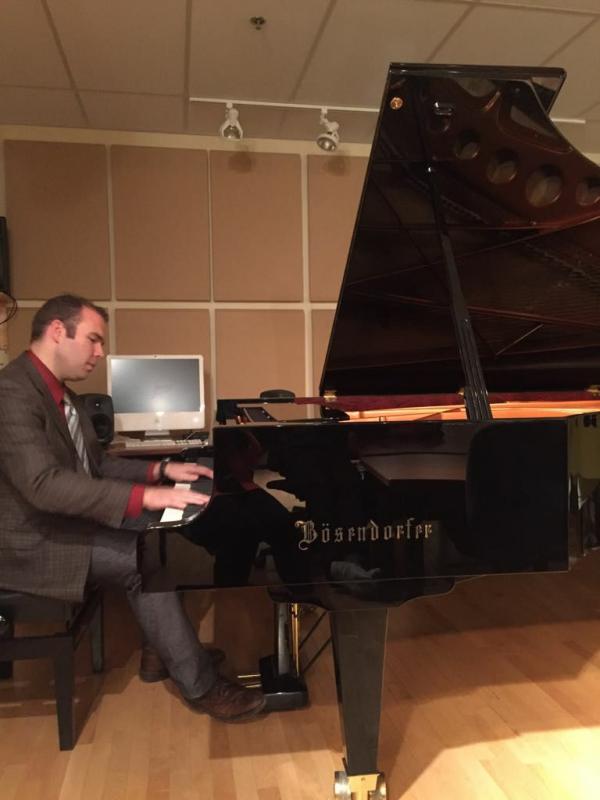
Dr. Joseph Schlesinger is a professor in the Department of Anesthesiology and Division of Critical Care Medicine at Vanderbilt University Medical Center, Professor of Music at the Blair School of Music at Vanderbilt University, and Adjunct Professor of Electrical and Computer Engineering at McGill University in Montreal, Quebec, Canada. After earning his Bachelor of Arts in Music with a concentration in Jazz Piano Performance from Loyola University in New Orleans, Dr. Schlesinger earned his Doctor of Medicine degree from the University of Texas Health Science Center at Houston. He completed residency training in Anesthesiology followed by a fellowship in Critical Care Medicine at Vanderbilt University. While in training, Dr. Schlesinger became a B.H. Robbins scholar. Dr. Schlesinger’s research interests include multisensory integration, human factors, aural perception, temporal precision, alarm development, patient monitoring, and medical education. This work led to the prestigious 2014 Education Specialty Award from the Society of Critical Care Medicine.
Dr. Schlesinger is a physician-leader operating at the intersection of medical care, research, teaching, and business. Over 15 years of experience in anesthesiology, critical care, and biomedical device design, with a particular emphasis on patient safety. He has partnered with Philips, Karl Storz, and the U.S. Department of Defense to advance smart alarms, clinician interfaces, and auditory safety systems, and contributed to international standards via the International Organization for Standardization (ISO) and the Association for the Advancement of Medical Instrumentation (AAMI). From an outreach perspective, he has led ICU training and clinical systems development in Kenya, Tanzania, Ethiopia, Guyana, and Thailand. His work has been published extensively in high-impact journals, featured as an invited speaker at over 100 global venues, is an internationally recognized physician-scientist with industry experience in patient monitoring, safety, outcomes, and big data metrics.
He has been funded by the province of Quebec, the Department of Defense, the National Institutes of Health, and served on the study sections for the National Endowment for the Arts and the National Science Foundation. Besides his publication history in high-impact scientific journals, Dr. Schlesinger is a patented inventor and has been featured on the 99 Percent Invisible podcast, CNN Health, Wired Magazine, NPR (The Pulse – WHYY), Scientific American, and the New York Times.
Amanda Stone, PhD, Laboratory
Dr. Stone’s lab is focused on understanding mechanisms which contribute to pediatric pain outcomes in order to improve pediatric pain interventions. As a pediatric psychologist, Dr. Stone approaches pediatric pain from a biopsychosocial perspective, with a specific focus on the dynamic relation between parent and child factors. Studies in the lab often take an intergenerational approach to understanding pain and related outcomes.
Visit the website for the Pain Research Group and learn more about Dr. Stone’s current work.